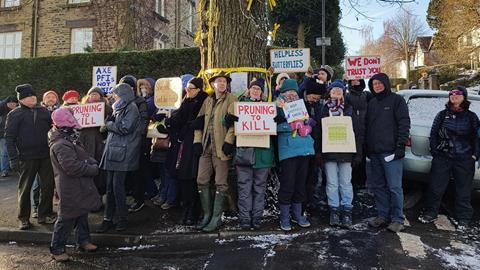In the wake of Birmingham’s insolvency, the Lawyers in Local Government governance conference looked at what councils must do to prevent organisational failures
Council lawyers gathered in Sheffield last Friday for Lawyers in Local Government’s governance conference. The event was timely, with authorities under intense scrutiny after Birmingham became the latest to effectively declare itself insolvent.
With more cash-strapped councils circling the plughole, good governance is crucial. ‘Poor governance can make the difference between local authorities coping and not coping,’ the National Audit Office has previously noted.
Section 114 notices, which require councils to pause and publicly reconsider spending decisions or budgets, ‘represent and signify broader organisational failure’, Guy Clifton, local government value for money director at accountancy firm Grant Thornton, told the conference.
Some of the causes of organisation failure? An over-reliance on interim statutory officers, those scrutinising business cases not asking the right questions, and the wrong decisions being taken.
Poor behaviour and culture also contribute to organisational failure, LLG executive director of policy and governance Helen McGrath noted. ‘There are no measurables for poor culture. We know what it is when we see it. But the problem with poor culture is it’s so embedded and accepted by all the players in the game, it becomes normalised. One person cannot hope to undo it.’
Signs of a toxic culture? Poor relationships, leadership intolerant of change, wilful ignorance, misplaced optimism, bullying, refusing to listen and closed meetings, she said.
Lawyers do not feel sufficiently protected to call out bad behaviour by councillors because of a ‘toothless’ sanctions regime, according to a landmark report on monitoring officers unveiled at the conference.
One interviewee said a monitoring officer was referred to the Solicitors Regulation Authority following a ‘fractious’ encounter with their council. Another said: ‘If I was to make a code of conduct complaint against one of my councillors, that would end my career.’
'There are no measurables for poor culture. We know what it is when we see it. But the problem with poor culture is it’s so embedded and accepted by all the players in the game, it becomes normalised. One person cannot hope to undo it'
Helen McGrath, LLG
The monitoring officer role is pivotal to effective governance and lawful decision-making in every local authority, LLG president Rachel McKoy said in the report.
‘Downgraded status, a lack of understanding about the role and the erosion of ethical standards have frequently featured in discussion with members. A lack of effective statutory protection for monitoring officers, the absence of meaningful sanctions, tensions with commercial objectives and a lack of seat at the top table have obfuscated speaking truth to power.’
In extreme situations, section 5 of the Local Government and Housing Act 1989 requires the monitoring officer to formally report to the council any proposal, decision or omission that could be unlawful.
However, in a session entitled ‘To issue or not to issue?’, former LLG president Suki Binjal described section 5 as the ‘nuclear option’. A mentor told her never to issue such a report unless it was the last resort. Draft one and keep it in the bottom of the drawer – but focus on trying to resolve the issues, was the mentor’s advice.
Another important topic: non-statutory inquiries. The public has increasingly come to see them as a way of finding the truth about controversial events or public authority failures, LLG said. Local inquiries sit outside the Inquiries Act and require councils to create their own processes.
A recent example is the Sheffield Street Trees Inquiry, which concluded in March when the final report was published.
‘Do not be in any doubt when you’re at the stage of having an inquiry that something has gone wrong,’ Sheffield City Council monitoring officer David Hollis said. ‘You do not use this as a communications aid because you need to get the point over better.’
The council has two roles in an inquiry: commissioner and stakeholder. The monitoring officer will need to resolve conflicts between the two. From a governance perspective, a plethora of questions and issues need to be asked and addressed. For instance, do you provide legally privileged material to the inquiry? What data will be relevant and where is it? What about GDPR? What pastoral support will staff need?
Councils need to think about the exit strategy from the outset. Why are they setting up the inquiry and where will it take them? ‘It should be something that allows you to move on,’ Hollis said. ‘Elected members – are they really on board? What if you get changes in the political balance at the time of the inquiry? What will you do if you do not accept the findings?’
Day two of the conference takes place today. On the agenda: supporting in-house solicitors in meeting their regulatory duties, the Elections Act 2022, severance pay governance essentials, the Building Safety Act, levelling up and housing disrepair. Local government lawyers may never have been busier.
This article is now closed for comment.





































4 Readers' comments